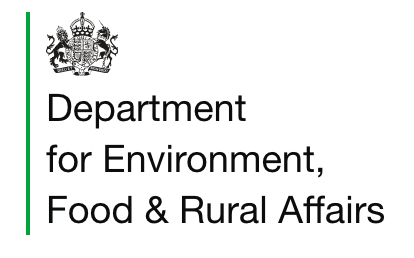Government backs greyhound racing again in petition answer

THE UK Government has again stressed that it has no plans to ban greyhound racing in England in a strong and detailed response by Defra [Department for Environment, Food and Rural Affairs] to a petition calling for such action and which compelled a response having reached 10,000 signatures,
Mirroring the answer given to Parliament by Culture Secretary Lisa Nandy in February, Defra's reply to the petition begins unequivocally: "The government has no plans to ban greyhound racing.
"While the government recognises the concerns some people have about greyhound racing, there is legislation in place to protect the welfare of racing greyhounds in England and a regulatory body – the Greyhound Board of Great Britain (GBGB) – that has made many improvements to greyhound welfare."


Culture Secretary Lisa Nandy's February views have been reiterated by her Defra department to Mark Bird's delight
The Defra response is printed in full below and GBGB chief executive Mark Bird was delighted to read it, particularly in the context of the on-going battle to prevent a Welsh ban being implemented, saying: "It is heartening that the British Government continues to take an evidence-based view of licensed greyhound racing in Britain.
"We are pleased to see fresh recognition of the tremendous improvements in greyhound welfare which have been achieved through GBGB's robust regulation - particularly in the context of such harmful and misinformed campaigns against the sport.
"As the Government recognises, GBGB is never complacent about greyhound welfare. Through our long-term welfare strategy, we continue to work with leading experts in fields from veterinary medicine to sports surfacing to further enhance welfare in the licensed sport.
"While the British Labour Government is being led by evidence, Welsh Labour is letting itself be led on by animal rights groups.
"Despite the overwhelming evidence of how regulation promotes and protects greyhound welfare, the animal rights lobby has been running its campaign based on outdated myths, inaccurate or uncontextualised data and unsupported anecdotal evidence.
"This response from the national Government should make Wales truly reconsider its ill-judged, politically motivated and entirely rushed piece of legislation to ban greyhound racing which endangers all reputable animal sports and activities in Wales."
Defra response to petition calling for ban
The government has no plans to ban greyhound racing. While the government recognises the concerns some people have about greyhound racing, there is legislation in place to protect the welfare of racing greyhounds in England and a regulatory body – the Greyhound Board of Great Britain (GBGB) – that has made many improvements to greyhound welfare.
The government also recognises the important contribution greyhound racing makes to the country’s cultural life and its rural economy, providing some 5,400 jobs across Great Britain as well as being the sixth most popular sport in terms of viewership.
The welfare of racing greyhounds in England is covered by the Animal Welfare Act 2006 and the Welfare of Racing Greyhounds Regulations 2010. The 2006 Act allows action to be taken where there is evidence of cruelty to an animal or a failure to provide for an animal’s welfare needs. This includes where greyhounds are raced at tracks or kept at trainers’ kennels. Further to these general provisions, welfare standards at all English greyhound tracks are set by the 2010 Regulations.
The 2010 Regulations include the requirement that all tracks must have a vet present while dogs are running, who must inspect each greyhound intended to run in every race, trial, or sales trial to ensure that the greyhound is fit to run. Temperature-controlled kennelling must also be provided at the track, and all racing greyhounds must be permanently identified. Tracks must also keep records of any injuries sustained to greyhounds while at the track.
Standards in the 2010 Regulations can be enforced either by the local authority or by GBGB. GBGB’s ability to regulate track standards in the 2010 Regulations is allowed for in law because they are accredited by the United Kingdom Accreditation Service (UKAS). UKAS is the UK’s National Accreditation Body, recognised by the government as the sole UK organisation for the accreditation of certification and inspection bodies. UKAS provides independent, external oversight of GBGB’s performance as a regulator of track standards.
In addition, GBGB has also introduced several welcome welfare initiatives. In collaboration with animal welfare groups, the GBGB has developed a set of detailed welfare standards for trainers’ kennels, which are then verified at trainers’ kennels by independent auditors, with this process also accredited by UKAS. On average, GBGB licensed kennels will be inspected three times a year by GBGB staff, as well as by a vet and an independent inspector.
The GBGB has also introduced a Greyhound Retirement Scheme to contribute towards rehoming costs; as well as an Injury Recovery Scheme to provide financial support to trainers to treat career-ending injuries to greyhounds, where otherwise they might be put to sleep.
In 2022, the GBGB published its long term, national welfare strategy: ‘A Good Life for Every Greyhound’ (https://www.gbgb.org.uk/welfare-care/commitment-to-care/). The strategy focuses not only on further reducing risks of injury but also developing and implementing new management practices to improve the welfare of greyhounds throughout their lives, including after racing.
Since 2018 GBGB have published yearly, independently audited injury, fatality and retirement figures. The overall, long-term trend for injuries and fatalities for racing greyhounds since 2018 has shown significant improvements. For example: the total number of GBGB registered greyhounds reported to have died has declined from 1013 deaths in 2017, to 386 in 2024; and the total number of greyhounds put to sleep due to the costs of treating injuries has fallen from 333 in 2017, to 3 in 2024.
Given the work being undertaken to improve greyhound welfare, and the protections in place, the government does not believe it is necessary to ban greyhound racing. However, the government will continue to monitor GBGB’s progress and, should further measures and protections be required, the government will consider options that are targeted, effective, and proportionate.
Department for Environment, Food & Rural Affairs
